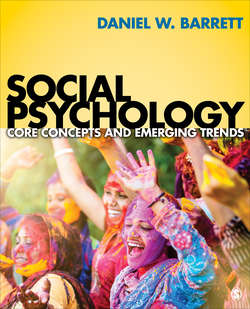Читать книгу Social Psychology - Daniel W. Barrett - Страница 125
На сайте Литреса книга снята с продажи.
Free Will and the Dual Mind
ОглавлениеThe fact that humans possess these dual-processing systems has implications for one of our fundamental questions about human nature: whether or not humans have free will. The existence of free will hinges upon the relative roles of controlled and automatic processing in determining human behavior. If virtually everything that we do is a product of mostly nonconscious processes, then there is little free will. If, however, we have conscious control of most of what we do, then this suggests a greater degree of free will. As you learn more about social psychology, you will likely be amazed—and perhaps shocked—at the many ways that nonconscious processes seem to dominate conscious ones (Baer, Kaufman, & Baumeister, 2008; Baumeister & Bargh, 2014; Dijksterhuis, Strick, Bos, & Nordgren, 2014; Hassin, Uleman, & Bargh, 2005). In fact, one prominent social psychologist has argued that conscious control is largely an illusion and that humans have little free will (Nahmias, Shepard, & Reuter, 2014; Wegner, 2002). After reviewing several common mental shortcuts, we’ll take a look at a number of ways in which humans seem to engage in willful behavior, such as deciding not to believe a claim we previously accepted, engaging in counterfactual thinking, and some types of reasoning.
Figure 3.2 Spreading Activation
Figure 3.3 Nonconscious Priming Can Make You Rude
Source: Adapted from Figure 1, Bargh, J. A., Chen, M., & Burrows, L. (1996). Automaticity of social behavior: Direct effects of trait construct and stereotype activation on action. Journal of Personality and Social Psychology, 71(2), 230–244.
